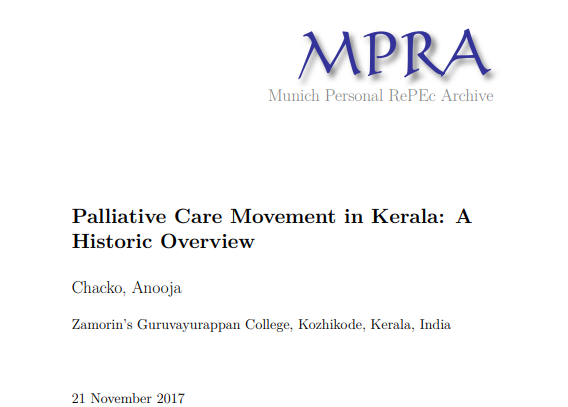What determines the sustainability of community-based palliative care operations? Perspectives of the social work professionals
This study examines the determinants of sustainability in community-based palliative care operations, emphasizing the successful Kerala model, particularly in Malappuram district. Kerala's palliative care approach is internationally acclaimed for its holistic and community-driven methodology. Through qualitative research and interviews with 12 professional social workers, five key themes emerged as critical factors for sustainable palliative care: holistic care, community participation, volunteerism, resource mobilization, and the socio-political environment.
Malappuram, in northern Kerala, exemplifies the effectiveness of this model, which integrates medical, psychological, social, and economic support tailored to patient and family needs. The district’s extensive community participation fosters a unique environment where local volunteers play a pivotal role in identifying needs, mobilizing resources, and delivering services. These volunteers, often trained, bring familiarity and trust, making care accessible and culturally sensitive.
Resource mobilization in Malappuram relies heavily on micro-donations, community fundraising, and support from socio-religious organizations, ensuring economic self-sufficiency. The socio-political climate of the region, characterized by communal harmony and social solidarity, further strengthens this initiative. This collaborative approach ensures patients in Malappuram receive home-based care, reducing costs and enhancing quality of life.
The study highlights the scalability of this model, with Malappuram serving as a prime example of how localized efforts can lead to sustainable and impactful healthcare solutions. Insights from this study are invaluable for policymakers and public health professionals aiming to replicate this success in other resource-constrained settings.




Comments
Post a Comment